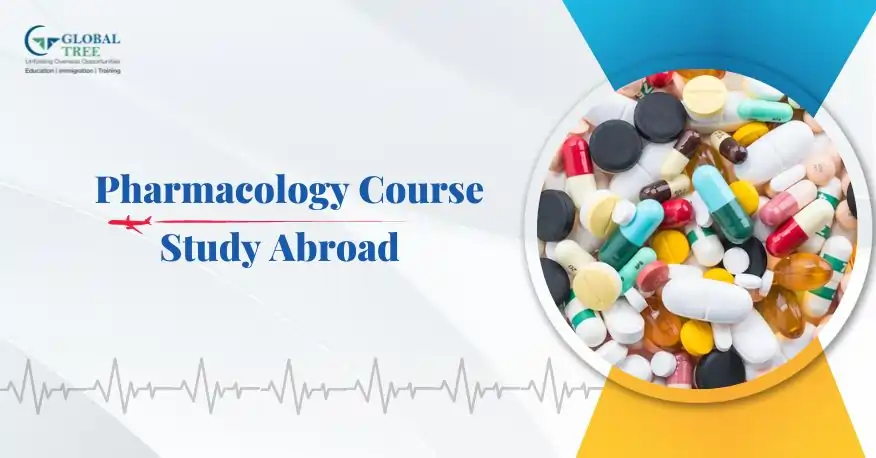All About Pharmacology Course to Study Abroad

Introduction
The study of medications and their effects on the body is referred to as pharmacology. This entails creating novel chemical compounds and researching both the beneficial and harmful impacts they may have on the body. As a result of its integration of toxicology, biology, chemistry, and physiology, pharmacology offers a skill set that can be useful for a variety of careers in the life sciences. In reality, a career in pharmacology might take you into the public sector, business, or even academia.
Who is eligible to study Pharmacology Course Abroad?
Good technical knowledge, good research abilities, the capacity to manage oneself, and organizational skills are all necessary for success in pharmacology. It's crucial to have excellent communication skills so that everyone can understand your findings. Choose the Best Pharmacology Courses & Colleges to Study Abroad.
Because pharmacology is a flexible career path, you can focus on a specialty that best matches your skills and personality. You may, for instance, work in product management, marketing, or medical information, and use your understanding of pharmacology to help patients, physicians, and pharmaceutical corporations communicate with one another.
How much does it cost to study Pharmacology Course Abroad?
Pharmacologists need a graduate degree at the very least. This can be in the biological, chemical, pharmaceutical, or a wide range of other important sectors. To deepen their grasp of toxicology, some aspiring pharmacologists decide to pursue a Master's or even a Doctorate degree. A Bachelor of Science could run you about USD$40,000 per year in the US and about AUD$40,000 per year in Australia, as a general rule. There are many advantages of studying abroad.
In the majority of nations, you'll have to finish coursework in a classroom or laboratory setting in addition to clinical practice or applied research. It's also important to find out if you require any permits or certifications to practice as a pharmacologist in the nation of your choice.
When choosing your education path, keep in mind the differences between pharmacology and pharmacy courses. While pharmacology courses are primarily concerned with the study of chemical substances and advances in health, pharmacy courses are more concerned with the administration of prescription medications.
What is the Future Scope of Pharmacology Course Abroad?
In general, 8% job growth for medical scientists is anticipated by 2028. The demand for cutting-edge new medications will increase along with the global population. Students studying pharmacology also have a wide range of career options in settings as diverse as academia, business, and hospitals.
(Read more: list of top courses after 10th to study abroad)
Trending Career Options in Pharmacology Course Abroad
Pharmacology graduates have a number of career options, ranging from drug discovery to teaching.
Career as a Pharmacologist
You will be in charge of creating and analysing drugs that will be used to treat illness as a pharmacologist. This entails altering drugs to lessen adverse effects, conducting studies to ascertain how drug concentrations alter over time in the body, and seeing what transpires in the body after a drug has been supplied. Additionally, you'll conduct drug testing, publish scientific reports on your findings, and offer guidance to the public, legislators, and healthcare professionals.
Career as a Pharmacist
Community chemists provide prescription drug dispensing and counselling services. Additionally, you will provide immunizations and do routine medical examinations on patients or clients as a chemist. Additionally, chemists can create and test the quality of novel medications in industrial settings.
Career as a Toxicologist
During the autopsy procedure, toxicologists analyse physiological fluids and tissue samples to detect any potential toxins or substances. They frequently operate in laboratories and are skilled in the various techniques needed to ascertain the precise concentration of medications, poisons, or toxins present in an individual's body.



 964 260 9000
964 260 9000